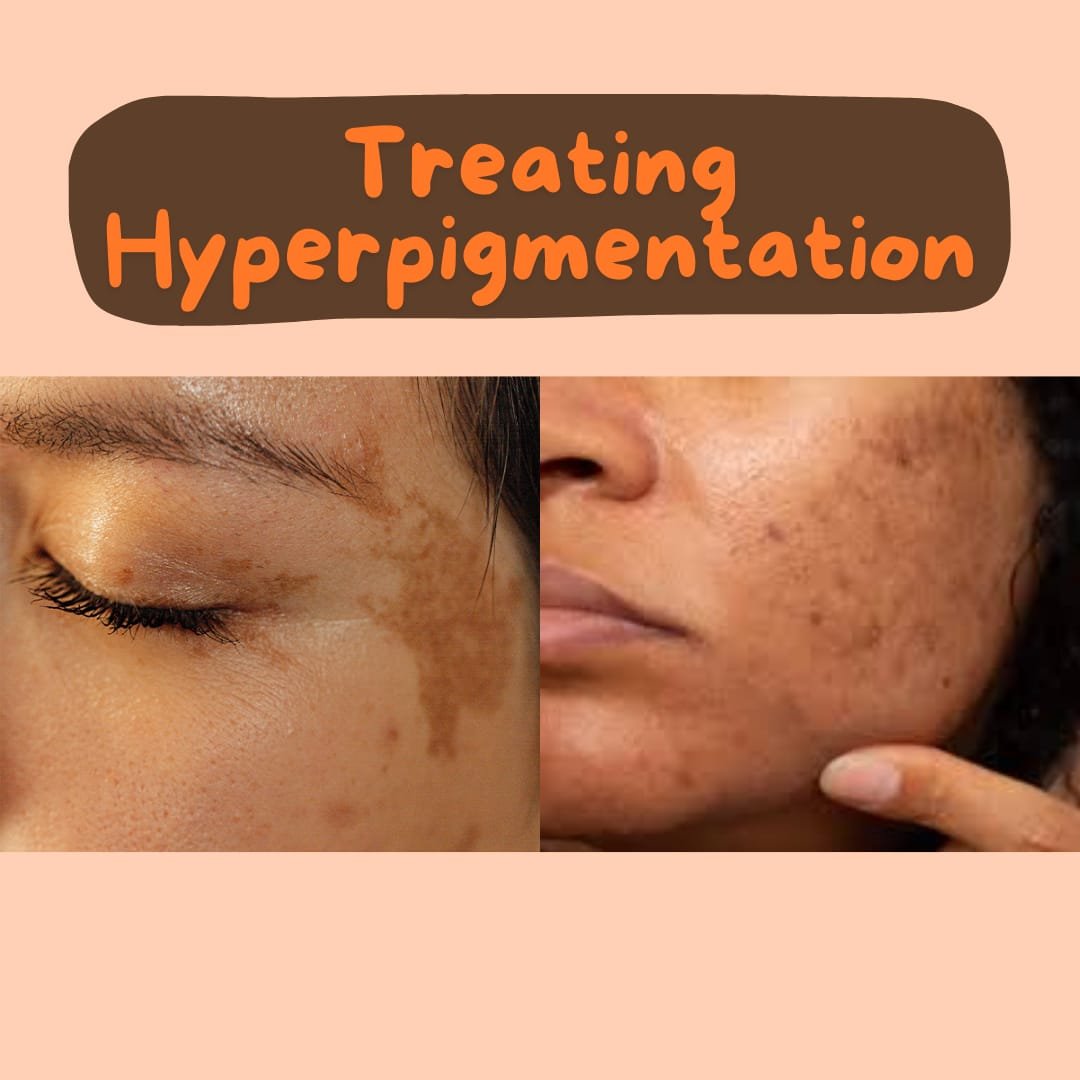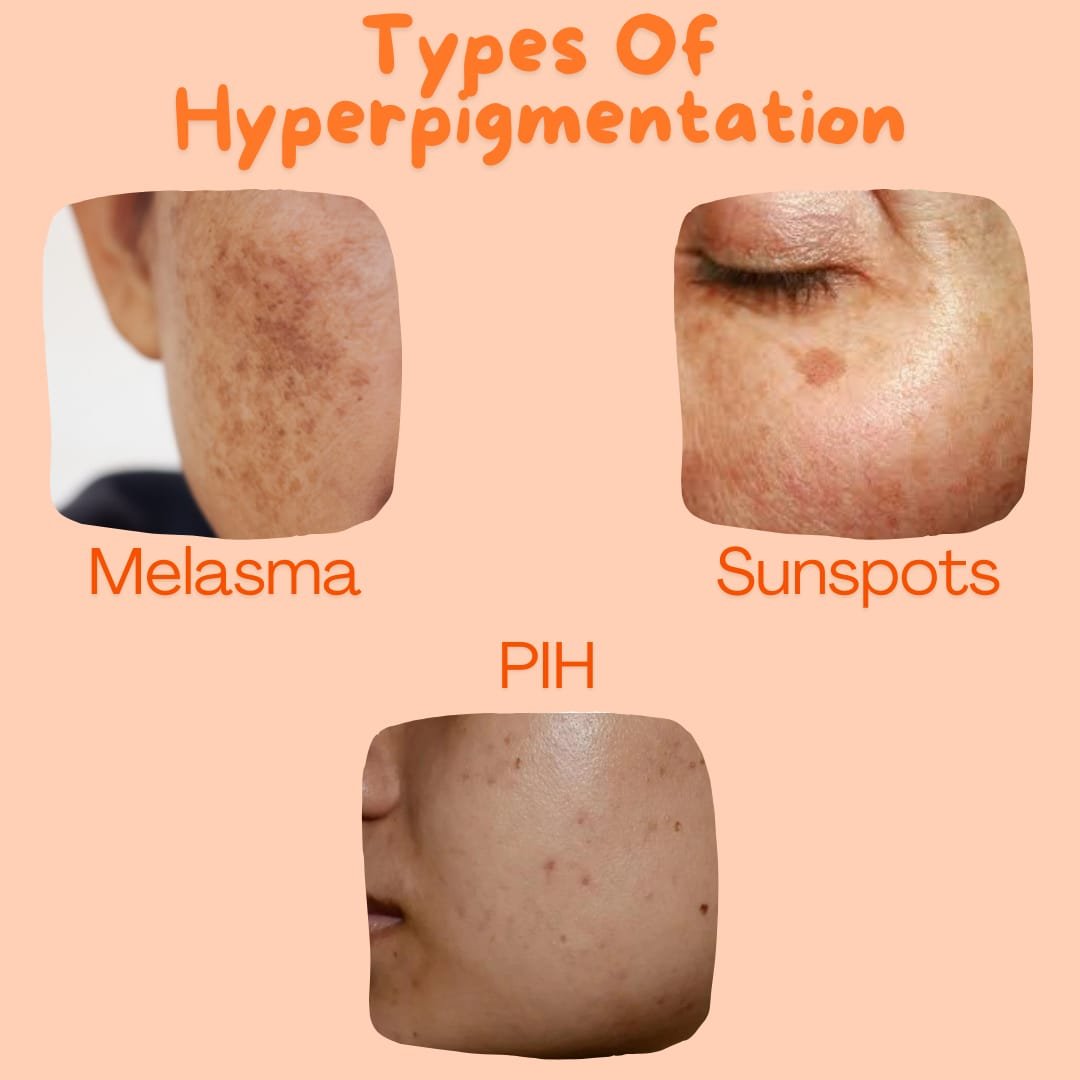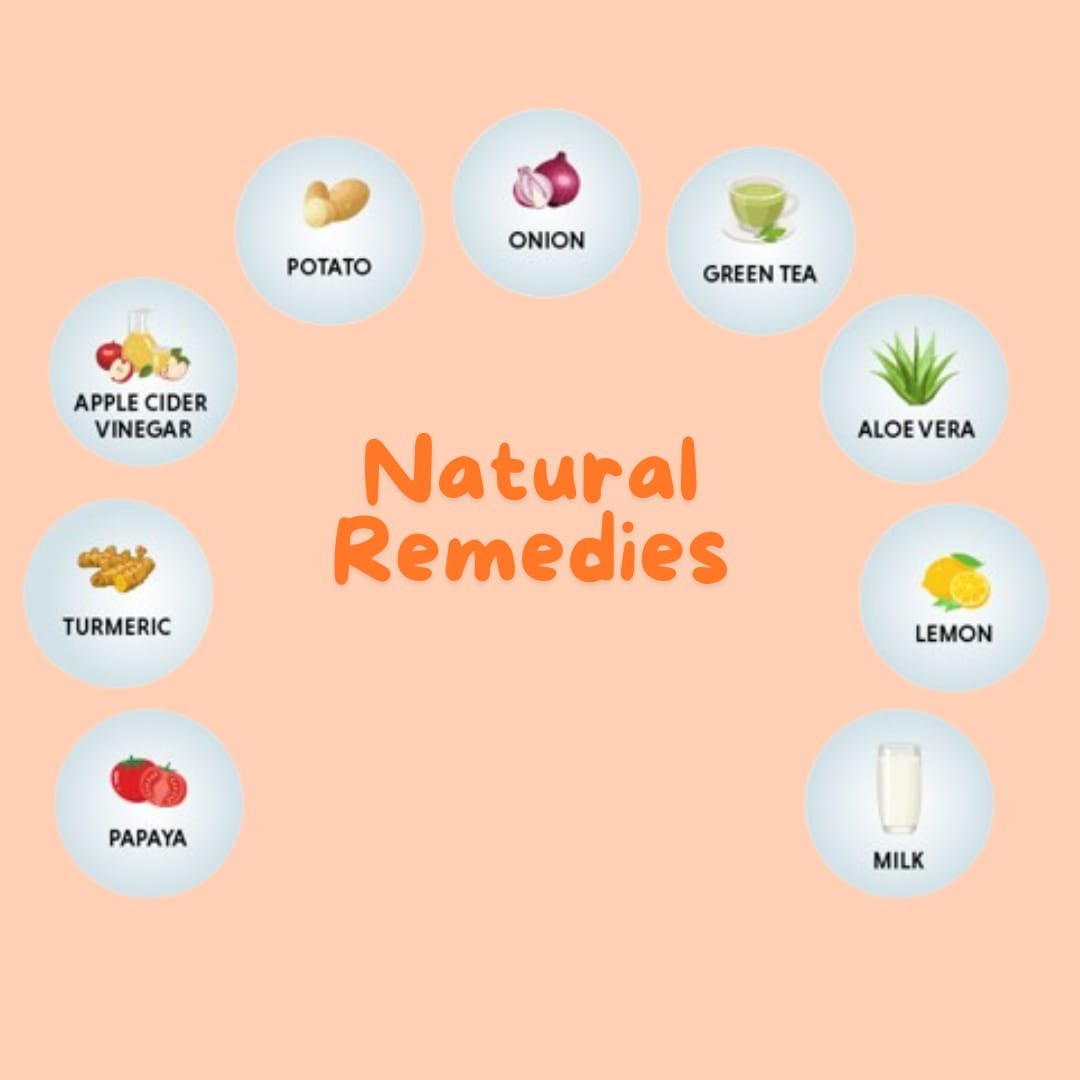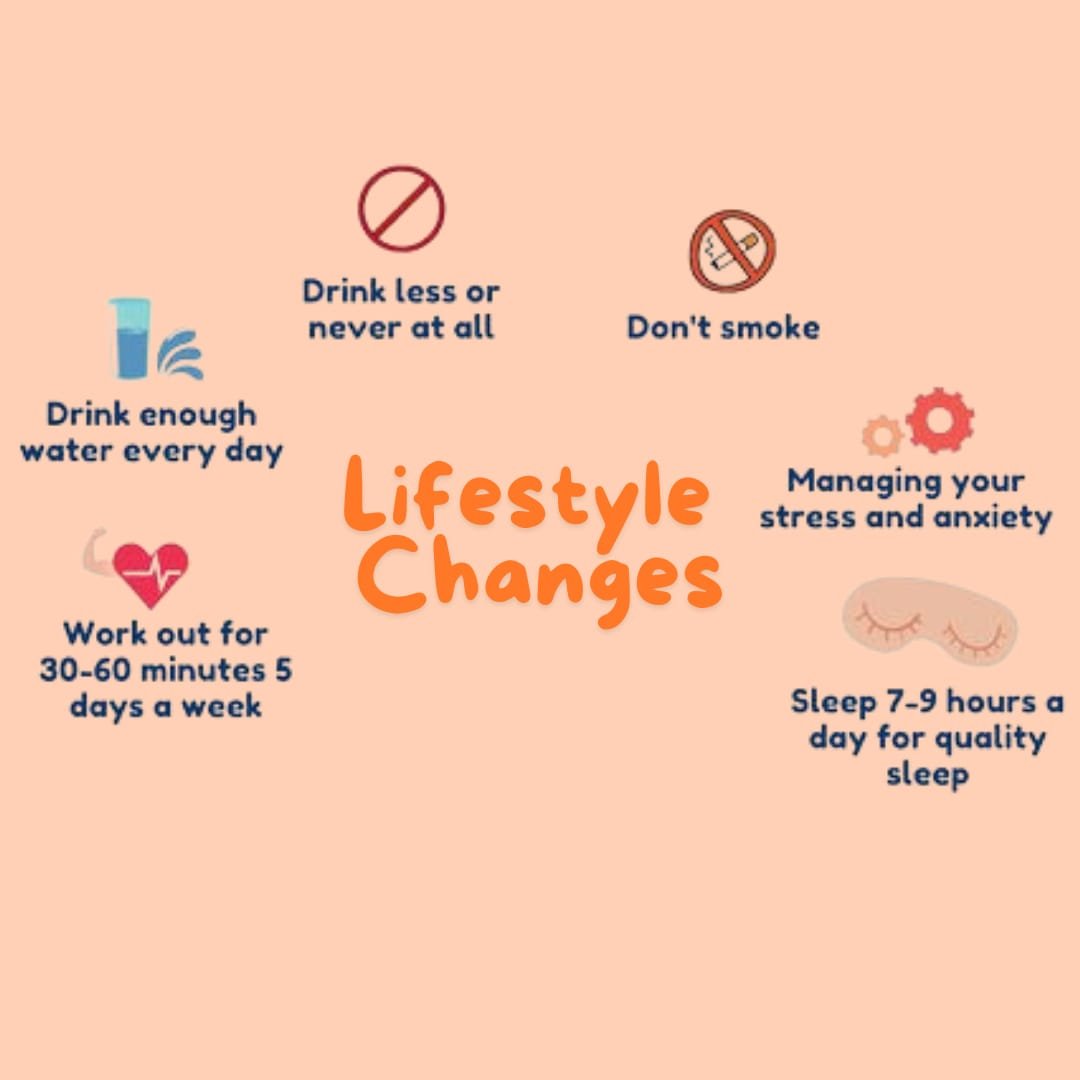Health
How to Treat Hyperpigmentation Naturally?

Did you know that nearly 45% of individuals struggle with some form of hyperpigmentation? [Source: NCBI]
The causes of this can be anything from sun exposure, hormonal changes, or injuries to the skin surface. As this can affect anyone, people constantly look for natural treatments. About 59% of skincare consumers look for natural or organic products for any skin condition.
Hyperpigmentation occurs when certain areas of the skin become darker from excess melanin production. Non-invasive ways to treat hyperpigmentation avoid the harsh chemicals or medical procedures that can go south for some. So today we will talk about the causes of skin condition and ways you can achieve healthier skin.
Understanding Hyperpigmentation
What is Hyperpigmentation?
Hyperpigmentation darkens certain areas of the skin with a high production of melanin. This is a pigment that gives color to our skin. This can occur in small patches, cover large areas, or affect the entire body in some cases. Hyperpigmentation is usually harmless but can have a big impact on your mental state. This is especially true if it appears on visible areas like the face or hands.
There are several common types of hyperpigmentation:

- Sunspots: Sunspots are also called solar lentigines or age spots which develop from long exposure to UV rays. They usually appear on areas of the body that are most exposed to the sun like the face, hands, and shoulders.
- Melasma: This is triggered by hormonal changes which are larger, darker patches, particularly on the face. This shows up in pregnant women and or those who are under hormone-related treatments.
- Post-inflammatory Hyperpigmentation (PIH): After an injury, our skin can become inflamed in the form of acne, eczema, or cuts. The area affected grows dark after the skin heals, leaving behind discoloration.
Causes and Contributing Factors
Hyperpigmentation can be triggered by different factors like:
- Environmental Exposure: Overexposure to ultraviolet (UV) rays from the sun triggers excess melanin production in the skin.
- Hormonal Imbalances: Changes in hormone levels, during pregnancy or due to the use of birth control pills, can lead to melasma.
- Skin Injuries or Inflammation: When the skin heals after acne, cuts, or burns, produces more melanin.
- Genetics: In some cases, genetics play a big role in developing hyperpigmentation.
- Medications: Certain medications, such as chemotherapy drugs and antibiotics can cause hyperpigmentation.
Why Choose Natural Treatments?
When it comes to treating hyperpigmentation, there are two common options available to you. While chemical peels, laser light therapy, and topical creams can deliver quick results. However, they often come with side effects like irritation and increased sun sensitivity. In contrast, natural treatments are gentler and are both skin-friendly and more sustainable.
Benefits of Natural Treatments:
- Fewer Side Effects: Natural remedies are less likely to cause skin irritation great for people with sensitive skin.
- Skin-Friendly Ingredients: Natural treatments use ingredients that nourish and protect the skin, such as aloe vera, vitamin C, and turmeric.
- Holistic Healing: Natural treatments start the healing from the root causes. Natural remedies boost collagen production and promote cell regeneration.
- Environmentally Friendly: Natural treatments are sustainably sourced and are free from harmful chemicals.
Top Natural Remedies for Treating Hyperpigmentation

Aloe Vera
Aloe vera is a very common remedy for hyperpigmentation. It has soothing and healing properties that make it a popular natural remedy for various skin conditions.
Benefits of Hyperpigmentation
Aloe vera has aloesin which controls melanin production. This helps reduce dark spots and even out skin tone. It is also great for hydrating and repairing skin damage.
How to Use Aloe Vera for Skin Treatment
To use aloe vera, extract fresh gel directly from the plant’s leaves. Apply the gel to affected areas and leave it on for 20-30 minutes before rinsing with lukewarm water. Repeat this twice daily for the best results.
Turmeric
Turmeric is a powerful antioxidant that has been used in traditional medicine for centuries and is a popular natural solution for skin issues.
Antioxidant and Anti-Inflammatory Properties
Turmeric has curcumin which reduces melanin production, lightens hyperpigmented areas, and improves overall skin tone.
DIY Turmeric Masks for Hyperpigmentation
You can use turmeric in the form of a DIY mask recipe. Combine 1 teaspoon of turmeric with 2 teaspoons of yogurt and 1 teaspoon of honey. Apply it to the skin and leave it on for 10-15 minutes before rinsing off thrice a week.
Apple Cider Vinegar
Apple cider vinegar has natural acids that exfoliate the skin and heal it with time.
Role of Acetic Acid in Skin Lightening
ACV has acetic acid which helps exfoliate dead skin cells, lighten dark spots, and suppress melanin production
Application Tips
Dilute apple cider vinegar with water in a 1:1 ratio and apply the mixture to affected areas using a cotton pad. Let it sit for 2-3 minutes before rinsing off. Since this is acidic, test it out before using it regularly.
Licorice Extract
Licorice extract is another natural ingredient in skincare that is loved for its ability to lighten skin and reduce hyperpigmentation.
Active Ingredients That Help with Hyperpigmentation
Licorice extract has two active compounds, glabridin and liquiritin. Glabridin has an enzyme tyrosinase that is responsible for melanin production and liquiritin removes existing melanin from the skin.
Best Ways to Incorporate Licorice Extract
You will find licorice extract in natural skincare serums and creams. You can mix a few drops of licorice extract with a carrier oil like jojoba or almond oil and apply it to the skin.
Green Tea Extract
Green tea is rich in antioxidants that can bring several benefits when used for the skin.
Antioxidants That Brighten Skin
Green tea has EGCG (epigallocatechin gallate) which is a powerful antioxidant that can reduce the dark spots and help brighten the skin.
How to Use Green Tea for Hyperpigmentation
You can use the cooled tea as a toner or as a scrub made by mixing used green tea leaves with sugar and coconut oil.
Vitamin C
Vitamin C is essential for skin health too.
Brightening and Anti-Aging Properties
Vitamin C interacts with tyrosinase which helps reduce dark spots. Additionally, it also stimulates collagen production that promotes smoother and firmer skin.
DIY Vitamin C Serums
If you want to make a DIY Vitamin C serum, dissolve 1 teaspoon of vitamin C powder in 2 tablespoons of distilled water. You can add a few drops of rosehip or almond oil and apply the mixture to your skin.
Essential Oils
Popular Essential Oils for Hyperpigmentation
- Tea Tree Oil: This has antibacterial properties that reduce inflammation and help fade dark spots.
- Rosehip Oil: This promotes cell regeneration and reduces hyperpigmentation.
- Lemon Oil: Citric acid in lemon oil helps brighten the skin and fade dark spots.
Application Safety Tips
Always dilute essential oils with carrier oils to prevent skin irritation. Avoid direct sunlight after applying lemon oil or any citrus-based essential oils.
Lifestyle Changes to Help Reduce Hyperpigmentation

Sun Protection
Importance of Sunscreen
Too much exposure to sunlight is one of the primary causes of hyperpigmentation. UV rays stimulate melanin production, which can worsen existing dark spots. Use sunscreen daily as it protects the skin from both UVA and UVB rays.
Natural Sunscreens
A natural approach to making DIY sunscreen is also a possible solution. Ingredients like zinc oxide and titanium dioxide make a barrier against the sun’s rays. Additionally, you can also use natural oils such as carrot seed oil and raspberry seed oil for light protection from sunlight.
Healthy Diet for Skin Health
Foods Rich in Antioxidants
Make a diet plan rich in antioxidants like dark leafy greens, berries, and foods high in vitamins C, E, and A. This supports skin regeneration and protects against environmental damage.
Hydration and Skin Health
Drinking water helps maintain skin elasticity, flush out toxins, and promote new cell growth. Make sure to drink at least 8 glasses of water daily.
Regular Exfoliation
Natural Exfoliants
Exfoliants like oatmeal, sugar, and coffee scrubs can be used to exfoliate without causing damage or irritation. These ingredients can be combined with oils like coconut or olive oil to create a soothing scrub that nourishes the skin while exfoliating.
Importance of Removing Dead Skin Cells
Regular exfoliation removes dead skin cells and helps speed up cell turnover which in turn reduces hyperpigmentation. Exfoliating regularly increases skin cell growth and helps to even out the skin tone over time.
Things to Avoid When Treating Hyperpigmentation Naturally
Harsh Chemicals
Avoid using harsh chemicals like hydroquinone or retinol without proper guidance. These ingredients are effective but have side effects.
Picking or Scrubbing the Skin
Skin Trauma and Worsening Hyperpigmentation
Do not pick at dark spots or scrub the skin too hard. This can cause further damage and trauma to the skin which triggers melanin production.
How Long Does It Take to See Results?
Patience with Natural Remedies
Natural remedies take time to show noticeable results in comparison to chemical treatments. Natural remedies work slowly and support the skin’s natural healing processes.
Typical Timeframe
On average, it may take several weeks to months for results to show up. Subtle changes may show after 4-6 weeks of consistency. For stubborn spots expect to see results in 3 to 6 months of regular treatment.
Wrapping Up: Hyperpigmentation Treatment
Hyperpigmentation is a natural process of the body. Some people are affected a lot whereas some are not affected at all.
Natural remedies can help if you are patient and consistent. If needed consult a dermatologist if hyperpigmentation worsens. With the right approach, natural treatments can help make your skin healthier and more radiant.
Frequently Asked Questions
Can I combine natural treatments for hyperpigmentation?
Natural treatments can be combined to treat hyperpigmentation. Using Aloe vera in the morning and a turmeric mask in the evening should cause more good than harm.
Are there any side effects of using natural remedies?
Natural remedies have fewer side effects than chemical treatments. However, some people may still have mild irritation or allergic reactions.
Do natural remedies work for all skin types?
Natural remedies can be effective for all skin types however if you have sensitive skin you should be extra careful. Always start small and increase use if your skin reacts positively.
Should I still use sunscreen if I’m treating hyperpigmentation naturally?
Sunscreen is something that you must use even if you are not treating hyperpigmentation. Pairing it can make sure sun rays do not undo the progress made from natural treatments.
How often should I apply these remedies?
Use natural remedies around 2 to 3 times a week. Gentler remedies like aloe vera or green tea can be used daily.
Also Read: healthtdy.xyz
-

 Celebrity1 year ago
Celebrity1 year agoWho Is Jennifer Rauchet?: All You Need To Know About Pete Hegseth’s Wife
-

 Celebrity1 year ago
Celebrity1 year agoWho Is Mindy Jennings?: All You Need To Know About Ken Jennings Wife
-

 Celebrity1 year ago
Celebrity1 year agoWho Is Enrica Cenzatti?: The Untold Story of Andrea Bocelli’s Ex-Wife
-

 Celebrity1 year ago
Celebrity1 year agoWho Is Klarissa Munz: The Untold Story of Freddie Highmore’s Wife
















